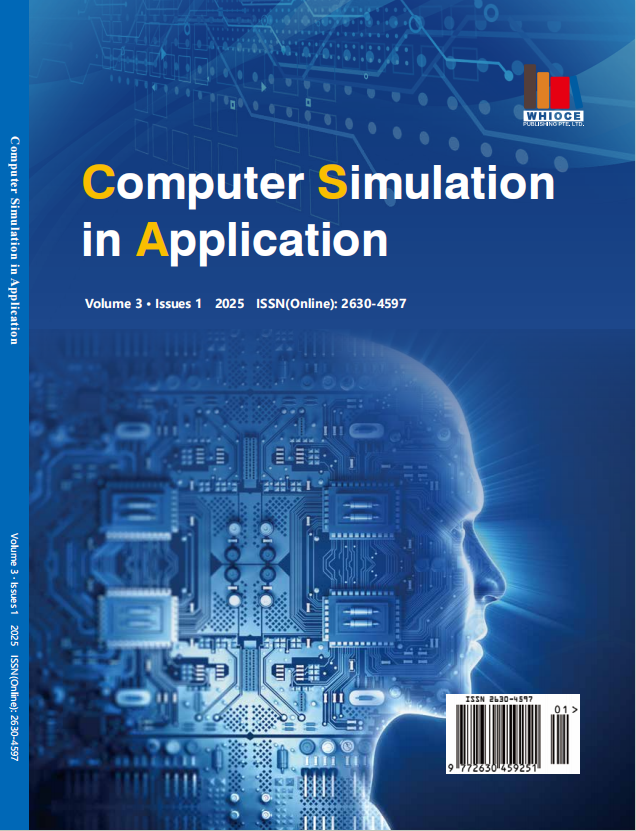AI-Driven Market Segmentation and Multi-Behavioral Sequential Recommendation for Personalized E-Commerce Marketing
DOI:
https://doi.org/10.18063/csa.v3i1.914Keywords:
Sequential recommendation, Pre-trained recommendation, Prompt Learning, personalized marketingAbstract
In the era of AI-driven e-commerce and advertising platforms, market segmentation and personalized recommendation have become essential for improving user conversion rates and marketing effectiveness. By leveraging artificial intelligence to conduct deep analysis of large-scale behavioral data from e-commerce platforms, it is possible to perform precise customer segmentation, identify diverse consumer groups, and develop customized marketing strategies. However, users in real-world recommendation scenarios typically exhibit multiple interaction behaviors—such as clicking, adding to cart, and purchasing—which makes it difficult for traditional single-task models to learn generalized representations without introducing task-specific biases. To address this challenge, we propose a pre-training paradigm designed to decouple task-specific and general knowledge in multi-behavior sequential recommendation (MBSR). Yet, conventional pre-trained models are often too large for practical adaptation by end users. Inspired by the success of prompt learning in the natural language processing field, we introduce CPL4Rec (Customized Prompt Learning for Recommendation), the first framework for customized prompt learning in MBSR. CPL4Rec generates user-specific prompts by integrating semantic embeddings from pre-trained models with diverse user attributes and behavioral information. Furthermore, to address the evolving nature of user interests over time, we incorporate a Progressive Feature Generation (PFG) framework that dynamically fuses multi-layer user representations within the model. To ensure controllability, we apply compactness regularization to constrain the prompt space. Extensive experiments conducted on three real-world datasets demonstrate that CPL4Rec achieves superior performance over state-of-the-art baselines in recommendation accuracy. This research offers a new technical pathway for AI-driven market segmentation and personalized e-commerce marketing, providing strong theoretical and empirical support for practical deployment in intelligent recommendation systems.
References
Du H, Shi H, Zhao P, et al. Contrastive learning with bidirectional transformers for sequential recommendation[C]//Proceedings of the 31st ACM International Conference on Information & Knowledge Management. 2022: 396-405.
Wu Y, **e R, Zhu Y, et al. Multi-view multi-behavior contrastive learning in recommendation[C]//International conference on database systems for advanced applications. Cham: Springer International Publishing, 2022: 166-182.
Yuan E, Guo W, He Z, et al. Multi-behavior sequential transformer recommender[C]//Proceedings of the 45th international ACM SIGIR conference on research and development in information retrieval. 2022: 1642-1652.
Gu S, Wang X, Shi C, et al. Self-supervised Graph Neural Networks for Multi-behavior Recommendation[C]//IJCAI. 2022: 2052-2058.
Chen C, Zhang M, Zhang Y, et al. Efficient heterogeneous collaborative filtering without negative sampling for recommendation[C]//Proceedings of the AAAI conference on artificial intelligence. 2020, 34(01): 19-26.
Alamdari P M, Navimipour N J, Hosseinzadeh M, et al. A systematic study on the recommender systems in the E-commerce[J]. Ieee Access, 2020, 8: 115694-115716.
Xu L, Sang X. E‐Commerce Online Shopping Platform Recommendation Model Based on Integrated Personalized Recommendation[J]. Scientific Programming, 2022, 2022(1): 4823828.
Islek I, Oguducu S G. A hierarchical recommendation system for E-commerce using online user reviews[J]. Electronic Commerce Research and Applications, 2022, 52: 101131.
Javed U, Shaukat K, Hameed I A, et al. A review of content-based and context-based recommendation systems[J]. International Journal of Emerging Technologies in Learning (iJET), 2021, 16(3): 274-306.
Karn A L, Karna R K, Kondamudi B R, et al. RETRACTED ARTICLE: Customer centric hybrid recommendation system for E-Commerce applications by integrating hybrid sentiment analysis[J]. Electronic commerce research, 2023, 23(1): 279-314.
Bączkiewicz A, Kizielewicz B, Shekhovtsov A, et al. Methodical aspects of MCDM based E-commerce recommender system[J]. Journal of Theoretical and Applied Electronic Commerce Research, 2021, 16(6): 2192-2229.
Wei W, Huang C, **a L, et al. Contrastive meta learning with behavior multiplicity for recommendation[C]//Proceedings of the fifteenth ACM international conference on web search and data mining. 2022: 1120-1128.
Guo L, Hua L, Jia R, et al. Buying or browsing?: Predicting real-time purchasing intent using attention-based deep network with multiple behavior[C]//Proceedings of the 25th ACM SIGKDD international conference on knowledge discovery & data mining. 2019: 1984-1992.
Rahman S, Khan S, Porikli F. A unified approach for conventional zero-shot, generalized zero-shot, and few-shot learning[J]. IEEE Transactions on Image Processing, 2018, 27(11): 5652-5667.
Alsini A, Huynh D Q, Datta A. Hit ratio: An evaluation metric for hashtag recommendation[J]. arxiv preprint arxiv:2010.01258, 2020.

